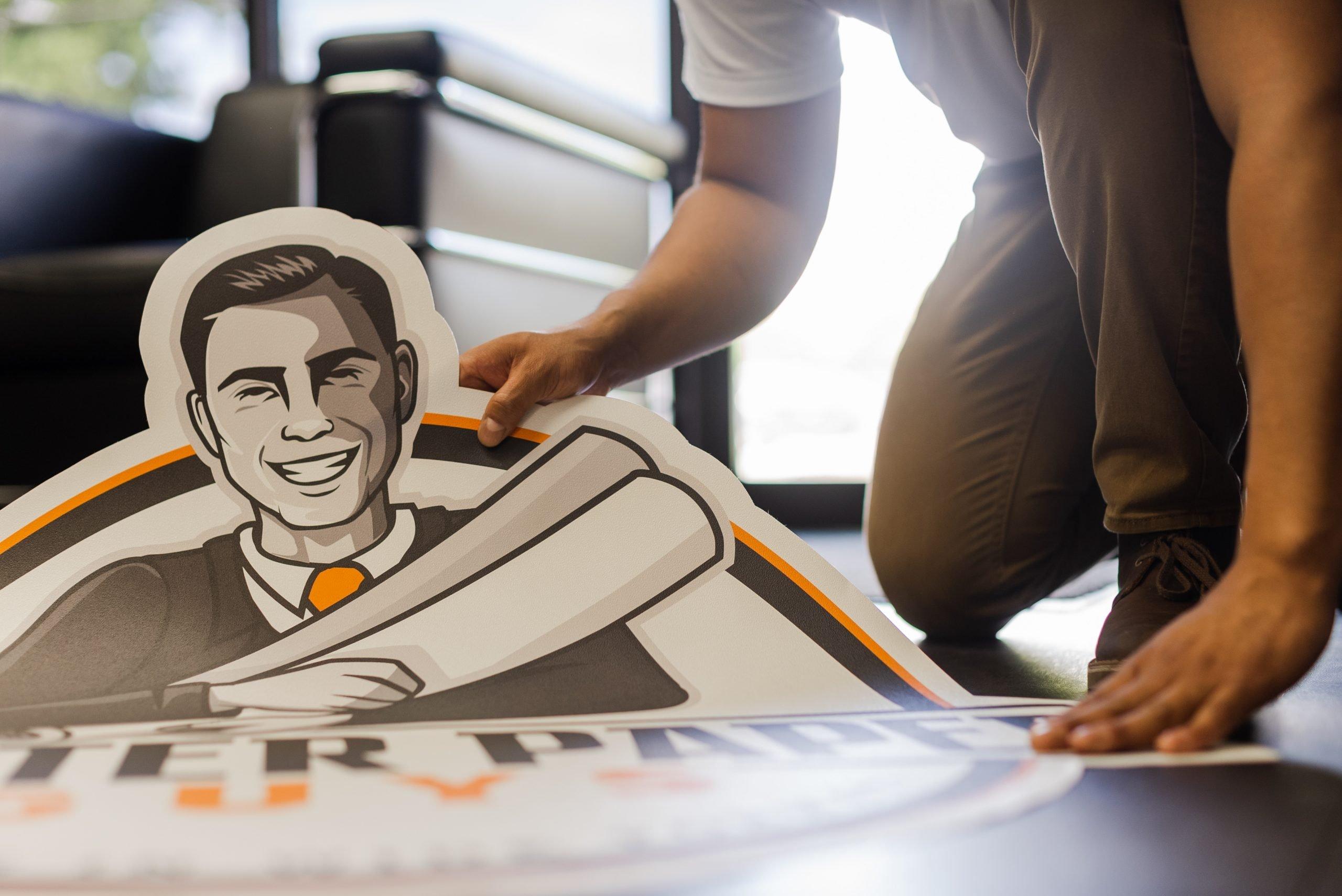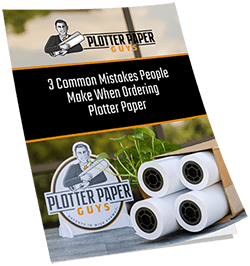A recent study revealed that people are 70% more likely to remember a brand with print advertising than an online ad. That’s a lot more traffic driven to your business if you’re going about it correctly. You’ll want to start investing in posters, banners, and billboards. Keep reading as we discuss everything you need to know about white print poster paper and how to use it.
What is Poster Board?
In the wide-format industry, there are many types of poster board. Some people might refer to it as foam board, gator board, substrate, or presentation board. This board is typically made of foam with a smooth outer layer, and is used to mount prints to. You will print your chart, advertisement, map, etc. on your preferred poster paper roll, cut the print to size, then mount it to a poster board. Some poster board is already adhesive, but the non-adhesive boards will have to have a mounting adhesive applied before you can affix your print.
Types of Poster Paper
When it comes to printing posters, there are several types of poster paper rolls; how do you know which one you need? Below, let’s review some of the options typically available.
Types of Poster Paper
There are three main types of poster paper: gloss, matte, and semi-gloss, also referred to as satin paper. Here we will briefly explain which paper is which.
Gloss Paper
Gloss paper is ideal for high-resolution poster designs and photos you want to mount directly on your wall. It has a high reflectivity which can add significant impact.
Matte Paper
These prints are low in their reflective properties and are best used behind a glass or acrylic sheet, which will add the shine that the matte lacks. This paper option is also well suited to high-resolution designs.
Satin/Semi-Gloss Paper
Semi-gloss, or satin, paper is ideal for vivid colors and high-resolution designs. It prints onto a smooth finish, like actual gloss paper, but also minimizes reflexivity as matte paper would, whereas satin paper is ideal for images with significant areas of darker colors.
Poster paper rolls are typically sold like the following (for example):
Paper Weights
The higher the poundage, the thicker the paper. It might be measure in pounds or in grams per square meter (GSM). Let’s briefly discuss the weights below:
- 130-170 GSM: This is your ideal weight for posters, as it’s heavier and more durable than regular paper.
- 170-200 GSM: This paper weight is ideal for heavy ink coverage and high-quality printing and falls midway between paper and card.
Understanding the different types of paper available to you will help you plan your posters and banners so that you get the most out of your printed product, so take the time to look through the available options from your chosen supplier.
How to Design a Great Poster
You can bear a few things in mind when creating your poster for print so that your printed product is of the highest quality. Here are some tips to get you started:
Design in CMYK
First and most importantly, you want to design your poster in the CMYK color space vs. RGB. This is because CMYK will provide a more accurate representation of how your colors will look in the final product, whereas RGB is better suited for screen viewing/digital images.
Use a Large DPI
Typically, you want to use a large resolution for your file, measured in DPI (dots per inch). Low-resolution files will mean a lower quality print with blurring and pixelation, so you want to aim for 300 dpi for a good quality print document.
Supply PDF Files
Your printer will appreciate you sending your files in PDF format with a print resolution of 300 dpi. Unfortunately, JPEGs generally undergo file compression, which loses some of the resolution data needed by a printer, so sending PDF or even TIFF with no compression will result in the best quality print.
Use Vectors
Vector images typically run smaller than other formats and are created in specialty programs such as Adobe Illustrator. Therefore, vector images will reduce your file size and provide the sharpest print result.
White Poster Paper Rolls FAQ
We get some common questions about white poster paper, so we’ve compiled a shortlist of some of the most commonly asked questions for your convenience.
What Is a Large Roll of Paper Called?
A large roll of paper can be called wide format paper rolls, large format paper rolls, Designjet paper rolls, etc.
What Kind of Paper Is Used for Posters?
Posters can be printed on a range of materials, from paper to vinyl. The choice as to which one to use depends on your needs. Posters for indoor use can be printed on 170GSM poster paper.
However, if you want your images to appear sharp and your colors to pop, you should use heavier paper.
How Much Does It Cost for Poster Paper?
Costing can vary greatly depending on the supplier and your location. Generally, if you’re looking at 100ft. rolls, your costing could look like this:
- 24″ x 100′ 36 lb. Heavy Weight Premium Coated Inkjet Bond Paper = $45.00
- 50″ x 100′ 36 lb. Heavy Weight Premium Coated Inkjet Bond Paper = $75.00
- 36″ x 100′ 46 lb. Heavy Weight Premium Coated Inkjet Bond Paper = $60.00
- 60″ x 100′ 46 lb. Heavy Weight Premium Coated Inkjet Bond Paper = $110.00
What Is White Paper Roll?
When someone asks for a “white paper roll”, they generally mean a standard, plain 20# bond paper. It is an all-purpose paper for personal projects, schools, and businesses. Its simplicity makes it ideal for collages, murals, finger painting, table coverings, games, etc.
What Is Thick Poster Paper Called?
Thick poster paper is also called heavy weight bond paper, or heavy weight presentation paper.
Buy the Best Quality Poster PaperToday
With so many types of poster paper on the market, you want to find a trusted supplier so you can ensure your work will come out perfect every time. However, you don’t have to become a paper or ink specialist when you can ask a professional.
If you’re looking for poster paper or advice but don’t know what size or product you’re looking for, talk to an expert today so we can help.





